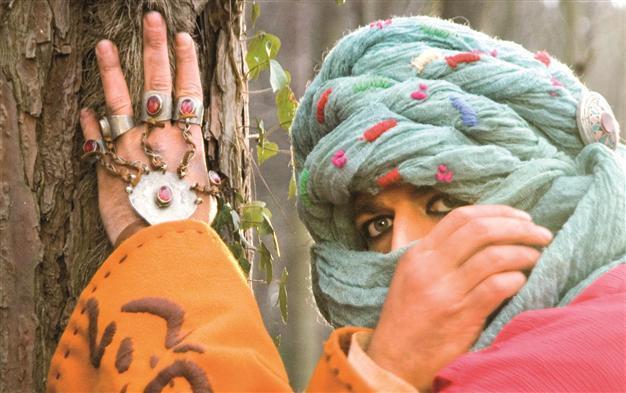Journey of makeup and accessories in Turkish cinema at an exhibition
ISTANBUL

The exhibition displays cosmetics and accessories used in Turkish films from the era of theater actors to Yeşilçam and from Yeşilçam to the present day.
TÜRVAK Cinema-Theater Museum is celebrating the 100th anniversary of Turkish Cinema with an exhibition titled “The 100-Year Journey of Makeup and Accessories in Turkish Cinema.”
Prepared by TÜRVAK – Türker İnanoğlu Foundation, with the support of Istanbul Metropolitan Municipality Department of Cultural and Social Affairs, the exhibition, for the first time in the history of Turkish cinema, presents the century-long history of makeup in Turkish cinema through photographs, documents and accessories compiled from private archives and collections.
Curated by Turkish cinema historian, researcher and author Burçak Evren and supervised by Assistant Professor Sevtap Aytuğ, makeup artist Yavuz Birsel, known as Corci, art directors Türkan Kafadar and Mustafa Ziya Ülkenciler, “The 100-Year Journey of Makeup and Accessories in Turkish Cinema” exhibition is witnessing the meeting of the first makeup masters of Turkish cinema and the young professionals on the 100-year-old stage of history.
While focusing on makeup, which is the first step in creating a character on the silver screen, and tracing its history in cinema in Turkey, the exhibition enables viewers to understand the aesthetic approach, artistic, social and cultural environments, economic conditions and technological developments in every term from the era of theater actors to Yeşilçam, from Yeşilçam to the present day.
The exhibition displays cosmetics and accessories from the 19th century; “Pertev” cosmetics advertisements with the comments by Muhsin Ertuğrul and Neyyire Neyir; accessories of the movies “Drakula Istanbul’da” (Dracula in Istanbul) and “Şarlo İstabul’da” (Şarlo in Istanbul); photographs of Talat Artemel in his magician makeup for the film “Kahveci Güzeli” (The Beautiful Coffee Seller); first examples of the effect makeup on Türkan Şoray’s face by Cemal Gonca; aging makeup applied to Yılmaz Güney in his film “Büyük Cellat” (Big Hangman) and to Hale Soygazi in the film “Mahkum” (Prisoner); documents and photographs showing Tarık Akan with his golden tooth in “Kan” (Blood) and with his white beard in “Abdülhamit Düşerken” (The Fall of Abdulhamit); photographs disclosing the makeup processes of Metin Akpınar and Talat Bulut for the film “Abuzer Kadayıf”; “Gulyabani” (Ogre) masks as the examples of the current developments in makeup technologies; “Atatürk” makeup applied to Rutkay Aziz in the film “Cumhuriyet” (The Republic); accessories of Cemal Hünal and Yetkin Dikinciler in “Ulak” (The Messenger).
From melodramas to comedies and horror films, from historical films to fantastic films, visualizing the history of makeup in Turkish cinema, the exhibition, which opened on Nov. 5, will remain open through Feb. 8, 2015.
